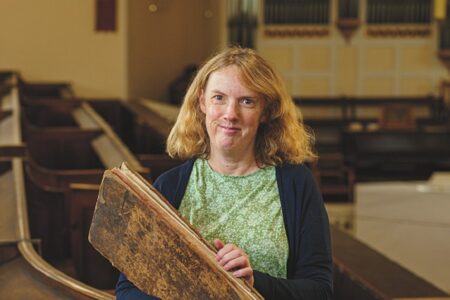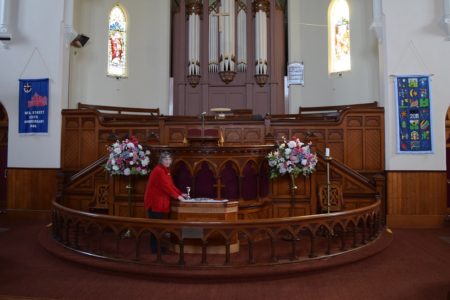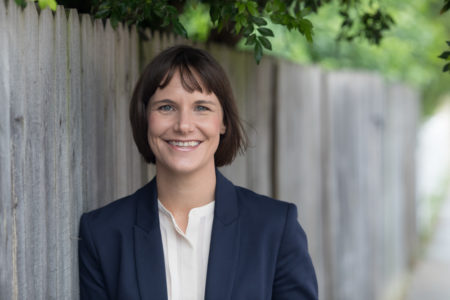By Donald Moss
In Wivenhoe Cemetery, outside Burnie on Tasmania’s north-west coast, lies the grave of a remarkable, yet little-known, woman: Jessie Spinks Rooke.
The cemetery was the site of a simple, but moving ceremony recently to celebrate the restoration of her grave to its original condition, thereby honouring Jessie’s enormous contribution to Tasmanian women.
Jessie died 115 years ago, but her legacy lives on in the Apple Isle, not the least being the work she did to have women being allowed to vote from 1903.
Jessie’s faith was also an important part of her life and she had a strong connection to the Presbyterian Church.
It was appropriate, and more than fitting then, that Tasmanian-based Uniting Church Ministers Fiona Morrison, Susan Malthouse-Law and Caro Field were on hand to witness the ceremony at Jessie’s grave.
Also in attendance were the two people whose tireless efforts ensured Jessie now rests in a setting appropriate to the legacy she left her adopted state.
Well-known Tasmanian equality activist Rodney Croome and women’s rights campaigner Vicki Russell led the restoration as a tribute to a pioneer of women’s rights in Tasmania.
“Jessie Spinks Rooke may have died over 100 years ago, but she has a message for us that is more important than ever,” Rodney says.
After moving to Tasmania in the 1890s, Jessie became the president of the Burnie Women’s Christian Temperance Union, which believed allowing women to vote was essential if the law was to protect their safety and dignity, and the rights of children.
The road to a vote for women was long and arduous, and one that needed faith and perseverance, qualities Rodney says Jessie had in spades.
“Jessie and a fellow advocate spent months travelling around Tasmania in horse-drawn carts along muddy roads in freezing temperatures to gather signatures on a petition for the right of women to vote,” Rodney says.
“They visited towns large and small, addressing public meetings with the refrain that the right to vote for women was ‘an act of common justice’. It worked and thousands of Tasmanians signed the petition.
“Then, when the Tasmanian Upper House said ‘no’ to reform, Jessie went around the island all over again with a second petition.”
For Vicki, the restoration was a labour of love over a 12-month period and, in the process, it allowed her to learn a little bit more about the remarkable life of a woman few people have heard of.
“When Rodney posted an item on Facebook about repairing the grave, someone I know sent it to me because they knew it was something I would probably like to get involved with,” says Vicki, who holds a PhD in Public Policy.
As a member of the City of Burnie Lions Club, Vicki knew immediately where to turn for assistance.
“As a Lions Club member, there was the prospect that the restoration was something that they would be happy to support financially,” she says.
With a lot of repair work required, the eventual cost of the restoration was $5000.
“All of the iron rails had broken off and were incredibly rusty, the concrete surround had collapsed on one side, the actual headstone was loose and the marble plaque was incredibly dirty and a lot of the lead lettering had come out,” Vicki says.
“We’re talking about a lot of problems, but now we have a beautifully restored headstone, and a beautiful plaque, with Jessie’s photo on it, which tells her story.”
Vicki now hopes the restored grave will awaken interest in Jessie’s life and achievements.
“People like Jessie paved the way for generations to come and gave them the rights they now take for granted,” she says.




